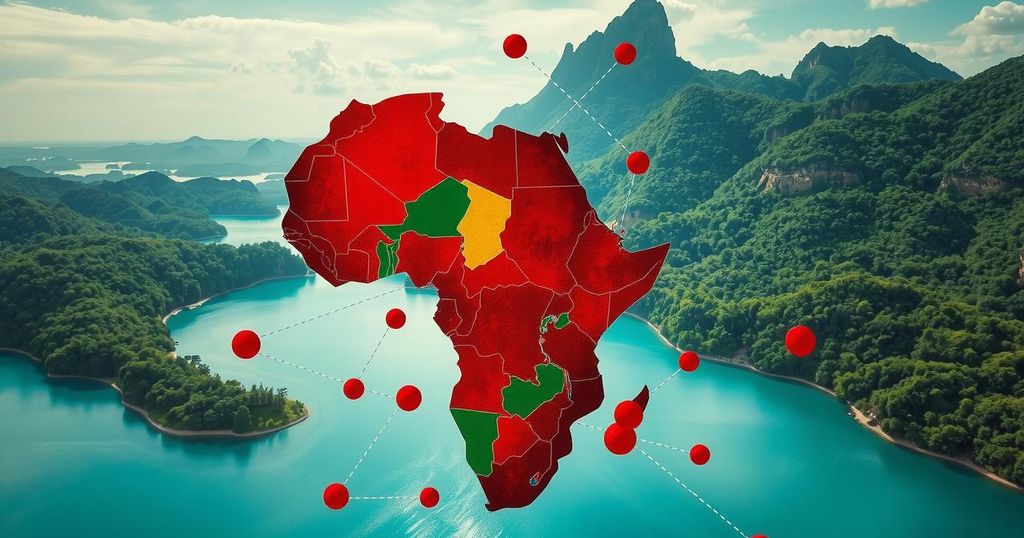Rwanda’s Aggression in Congo: Echoes of Putin’s Tactics
The M23 rebel group has seized Goma, echoing Russia’s expansionist tactics in Ukraine. Rwanda’s support of M23 serves as a proxy for territorial ambitions under the pretense of protecting minorities. This situation exacerbates the humanitarian crisis in Congo and reflects a disturbing trend in global geopolitics that could legitimize territorial aggression, calling for urgent international intervention.
The situation in Congo is alarming, as the M23 rebel group overtook Goma, the region’s largest city, leading to violence against UN peacekeepers and displacing hundreds of thousands of residents. The M23’s actions can be compared to Russia’s annexation of Donbas in 2014. Both cases involve a powerful state using proxy forces while denying direct involvement.
Rwanda’s President Paul Kagame has mirrored Putin’s strategies in eastern Congo, supporting the M23 rebels under the guise of defending Congolese Tutsis. However, this perceived threat is overstated. M23 serves as a proxy for Rwanda’s territorial ambitions, with Rwandan troops actively participating despite official denials.
The ongoing turmoil in Congo has displaced over 8 million people, resulting in rampant violence and looting. Rwanda, which has minimal gold production at home, strangely exports a significant amount of gold, raising suspicions about its economic motives in Congo. Unlike Ukraine, Congo lacks a stable government and is plagued by numerous armed groups, with Rwanda’s influence growing rapidly.
Rwanda’s incursions into Congo reflect a dangerous trend in the international arena, wherein the taboo against territorial invasions appears to dissolve. With figures like Putin aggressively claiming land and rising tensions globally, the endorsement of such imperialistic behaviors poses a severe threat to worldwide stability.
The M23 group previously captured Goma in 2012 but retreated under international pressure. The current geopolitical landscape, coupled with a weakened UN presence, has emboldened Kagame, especially as he garners support from countries such as China and Turkey. Western nations, despite admiring Rwanda’s internal stability, must reevaluate their support and pressure Kagame to cease his aggressive behavior.
If the international community allows Kagame’s actions to go unchallenged, it risks setting a precedent for further territorial disputes. In light of these concerns, global powers must cooperate to prevent the rise of might over right in international relations, as the consequences could lead to widespread conflict and instability.
The recent seizure of Goma by the M23 rebel group underscores a significant escalation in the ongoing conflicts within eastern Congo. By drawing parallels with Russia’s intervention in Ukraine, the article illustrates how Rwanda employs similar tactics to affirm its influence. This situation necessitates an understanding of the historical context and complexities surrounding Rwanda’s involvement in Congo, including the ethnic tensions and the role of powerful international actors.
Rwanda’s recent military actions in Congo reveal a dangerous shift towards aggressive territorial claims, mirroring Russia’s strategies. The international community must recognize the implications of allowing such behavior to persist. Enhanced diplomatic pressure is needed to mitigate Kagame’s ambitions and uphold the principles of international sovereignty, ensuring that stronger nations do not exploit weaker ones without consequence.
Original Source: www.hindustantimes.com




Post Comment